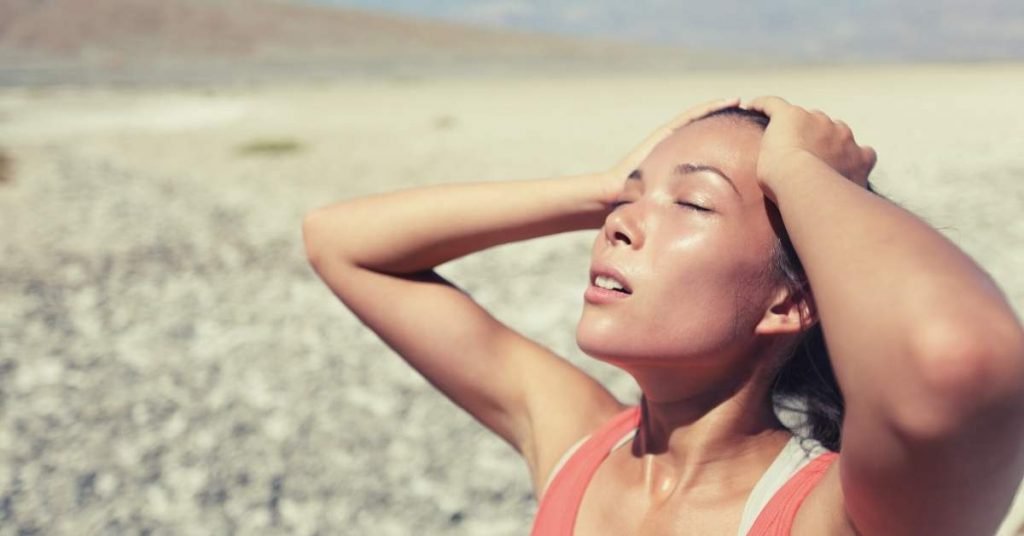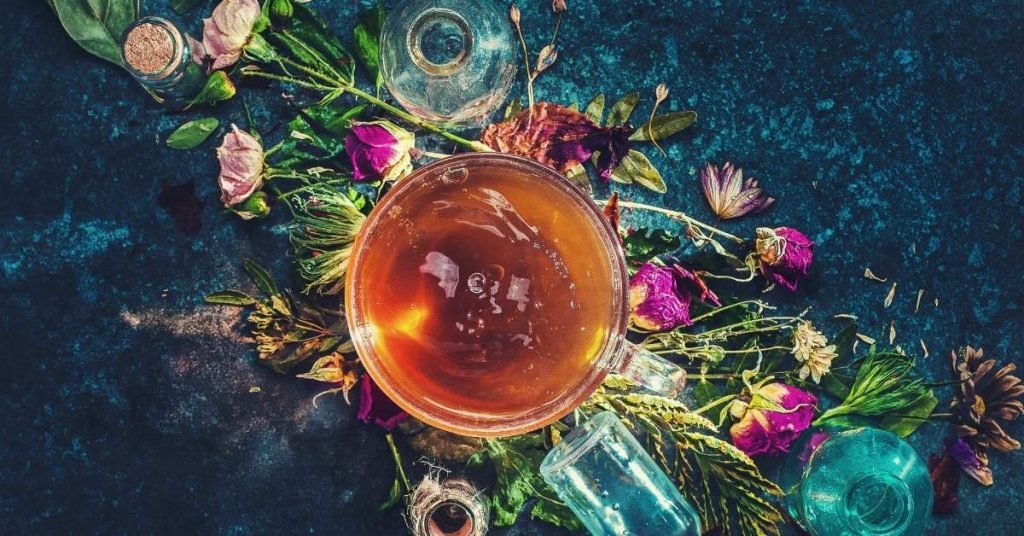Now there’s scientific proof about whether or not tea dehydrates our body. Tea may not be as bad as you think when it comes to staying hydrated!
What Is Dehydration?
Dehydration is a condition that occurs when the level of water in our body is less than it should be. The body expends water through sweating and urination. Our body must be in perfect balance at all times and when it isn’t we begin to feel the effects.
The human body is made mainly of water. According to a published study in Water Science School (“The Water in You: Water and the Human Body,”), the male body is 65% water and females 55%.
What Causes Dehydration?

Water plays an essential role in how the body performs. Without it, we would not be able to get rid of the waste and toxins that build up in our body. Moreover, we would be unable to metabolize food and produce new cells.
Our lungs are made up of 83% water. Organs in our bodies, such as muscles/kidneys, have 79%, heart 73%, and skin 64%. Our skeletal system is at 31%. That’s a LOT of water within our body!
H.H. Mitchell, Journal of Biological Chemistry 158
Water provides a suspension system that acts like shock absorbers for our brain and spine. A developing fetus in the womb also floats in water (amniotic fluid.) Our joints depend on water to stay lubricated. Water also acts as an internal air conditioning system through sweat. Replenishing ourselves continuously as we go through our day is necessary; otherwise, we become dehydrated.
If you happen to be taking diuretics or laxatives, drinking water is a must. Vomiting and diarrhea also cause dehydration quickly. A simple sunburn is also another cause of dehydration. So, as you can see, water is essential.
There are tell-tale signs indicating dehydration in the human body. Lastly, simply not drinking enough water leads to dehydration.
Symptoms Of Dehydration

- Confusion or mental impairment
- Feeling tired
- Unable to concentrate
- Inability to remember things
- Dry mouth
- Irritability
- Constipation
- Loss of skin elasticity
Long-Term Side Effects Of Dehydration
- Gallstones
- Kidney Disorders
- Stroke
- Cardiovascular Disorders
- Weight Gain
- Urinary Tract Infection
- Deep Vein Thrombosis
- Blood Pressure Disorders
- Dental Issues
- Fatality
Many people don’t drink water because it is tasteless. Soft drinks, tea, alcohol, juices, and other beverages are often consumed in place of water. Does tea count as water? More importantly, does it hydrate or dehydrate?
The information presented on this site is provided for information purposes only. It is not meant to substitute for medical advice or diagnosis provided by your physician or other medical professionals. Do not use this information to diagnose, treat, or cure any illness or health condition. If you have or suspect that you have a medical problem, contact your physician or healthcare provider.
Does Caffeine Cause Dehydration?

In short, overconsumption of caffeinated tea (black, green, oolong, white) can dehydrate. Consumption within the recommended range can cause minimal dehydration, because caffeinated tea is a natural diuretic.
The Nutrition Bulletin mentions the mechanism that may fuel the theory that caffeine causes dehydration. Caffeine directs more blood flow towards our kidneys. This increase in blood flow tells our body to urinate. The more we urinate, the more water our body loses.
Most who abide by this theory assume any amount of caffeine causes dehydration; however, evidence-based data says otherwise.
Caffeine is found in coffee, true teas (black, green, oolong, white,) some herbal teas, soft drinks, and chocolate. A research study conducted by Frontiers In Nutrition mentions an intake of 204-453 mg of caffeine in a 24-hour period should not increase urine output.
Two other recommended caffeine intake ranges include no more than 400 mg by the Food & Drug Administration and the European Food Safety Authority (EFSA.)
For tea drinkers concerned about caffeine, there are numerous herbal teas that offer a caffeine-free alternative. Lovely tisanes (herbal teas) such as lemon verbena mint, pomegranate berry, tulsi (holy basil,) or chocolate mint truffle provide a beautiful cup of tea without the worries of counting caffeine.
Does Green Tea Dehydrate You?

Green tea is notorious for its health benefits! The average cup of green tea may contain about 30 mg of caffeine. A tea drinker may safely enjoy about 1-6 cups of green tea daily without fear of experiencing severe dehydration.
Matcha green tea is very high in caffeine (up to 300 mg per serving) so use caution when drinking too much because it has the potential to dehydrate.
Does Black Tea Dehydrate You?

Black tea also has numerous health benefits. One six-ounce cup of black tea can yield about 40-60 mg of caffeine. That being said, a tea drinker might have up to six cups of their favorite black tea.
Does Herbal Tea Dehydrate You?

The wonderful thing about tisanes (herbal tea) is that most do not dehydrate. Tisanes (except yerba mate and yaupon) are caffeine-free, thus no fear of dehydration. Some may cause dehydration, so it helps to know what those herbal teas are.
The Journal of Ethnopharmacology outlines dehydrating herbs (used in herbal teas.)
- Caraway
- Dandelion
- Elderberry
- Fennel
- Hibiscus
- Juniper
- Parsley
- Peppergrass
If you are concerned about dehydration, there are a LOT of other herbal teas to select from that are just as delicious!
Does Iced Tea Dehydrate You?

Iced tea made of caffeinated true tea (black, green, oolong, white) may be slightly dehydrating. Remember that moderation is key to preventing taking in more caffeine than recommended, thus potentially causing an elevated dehydrating effect.
Is Drinking Tea As Healthy As Drinking Water?
Nothing can replace water, but tea comes pretty close! Our bodies require water, so drinking water during the day is a must. Tea does deliver health benefits that water may not necessarily have. If you must “pick your poison,” tea is far better and healthier than soft drinks, sugary beverages, or alcohol.
What’s Best: Tea Or Water?
There’s no denying that water is best, but tea provides you with a delicious option plus super health benefits. We recommend you follow up with a cup of tea with a glass of water to stay ultra-hydrated. Make time to rehydrate and recharge with one of the world’s many fine teas.
After all, “It’s Never Not Teatime!”
MEDICAL DISCLAIMER
Itsnevernotteatime.com cannot and does not contain medical/health advice. The medical/health information is provided for general and educational purposes only and is not a substitute for professional advice.




